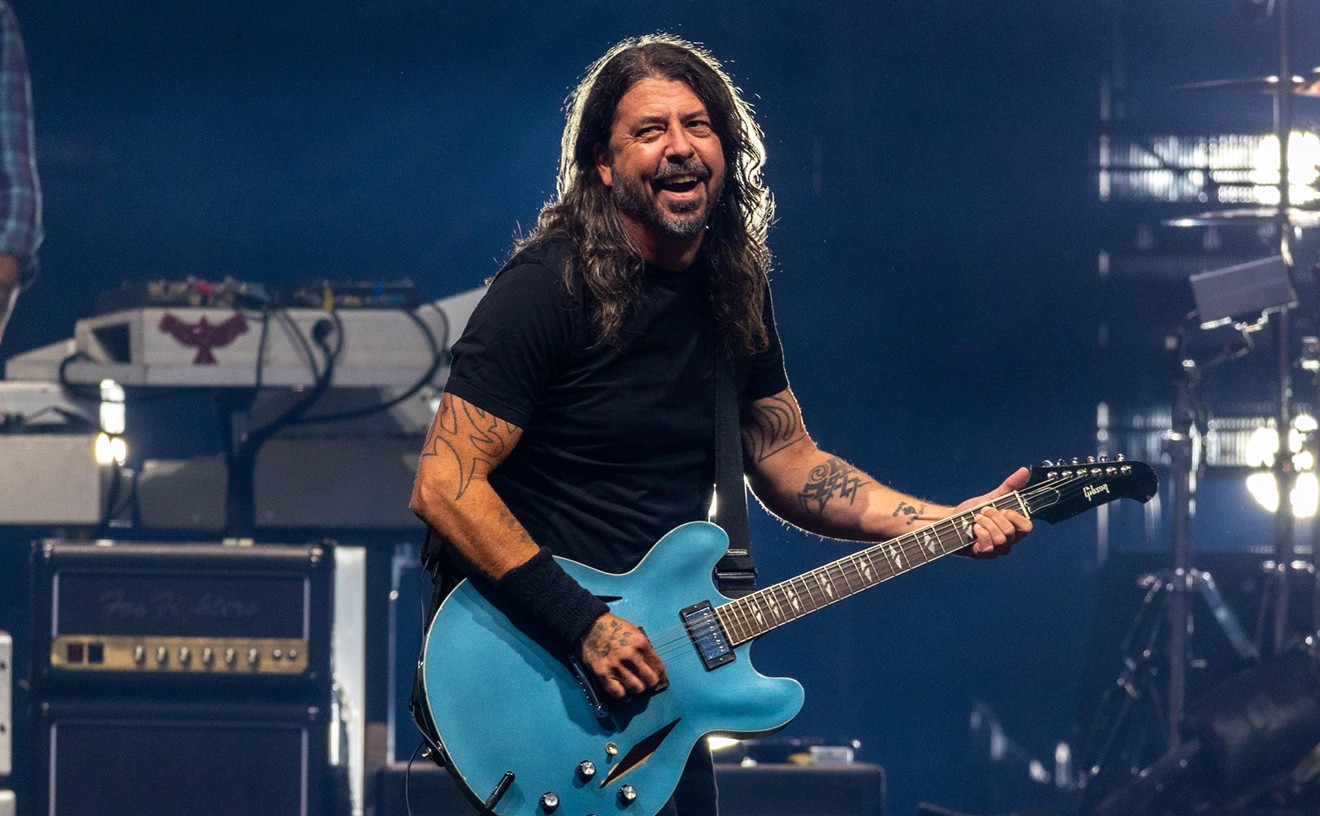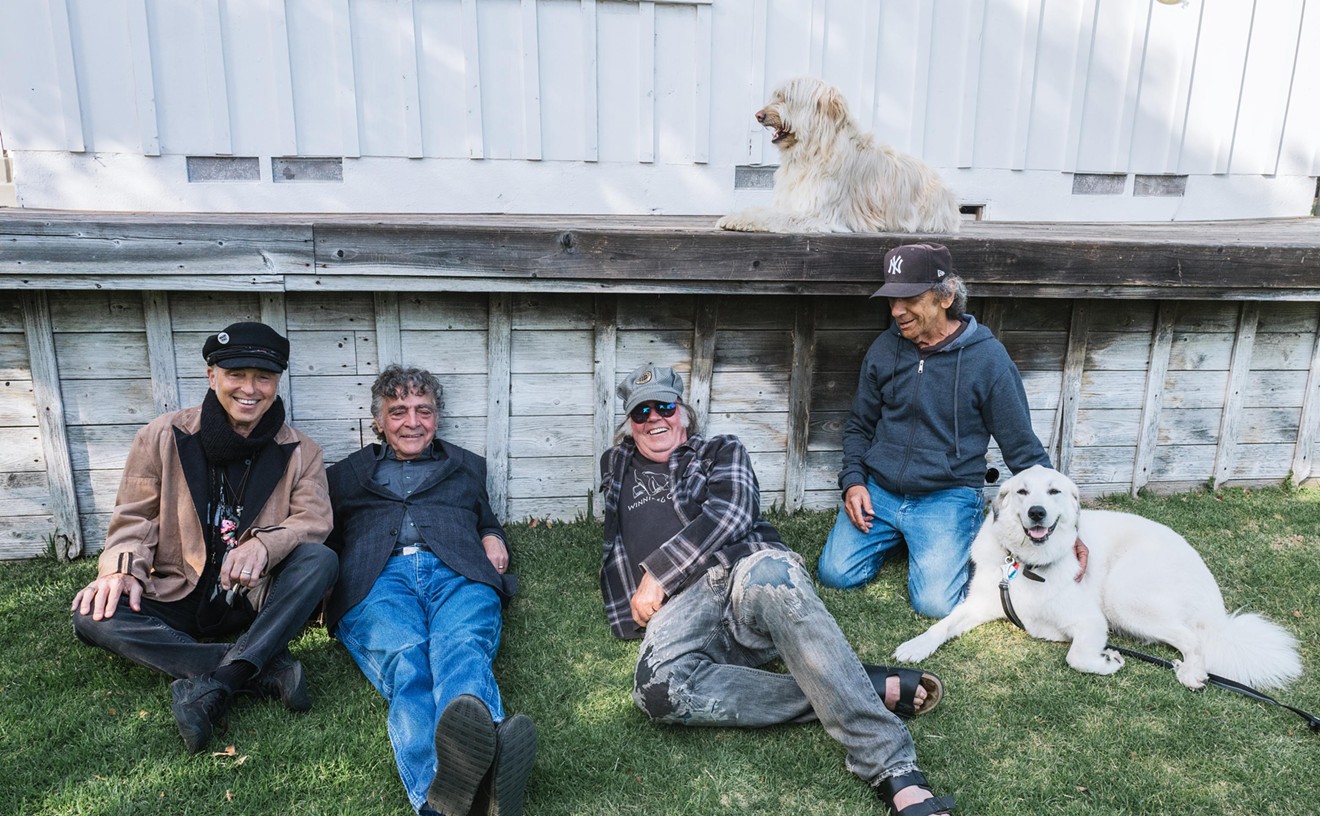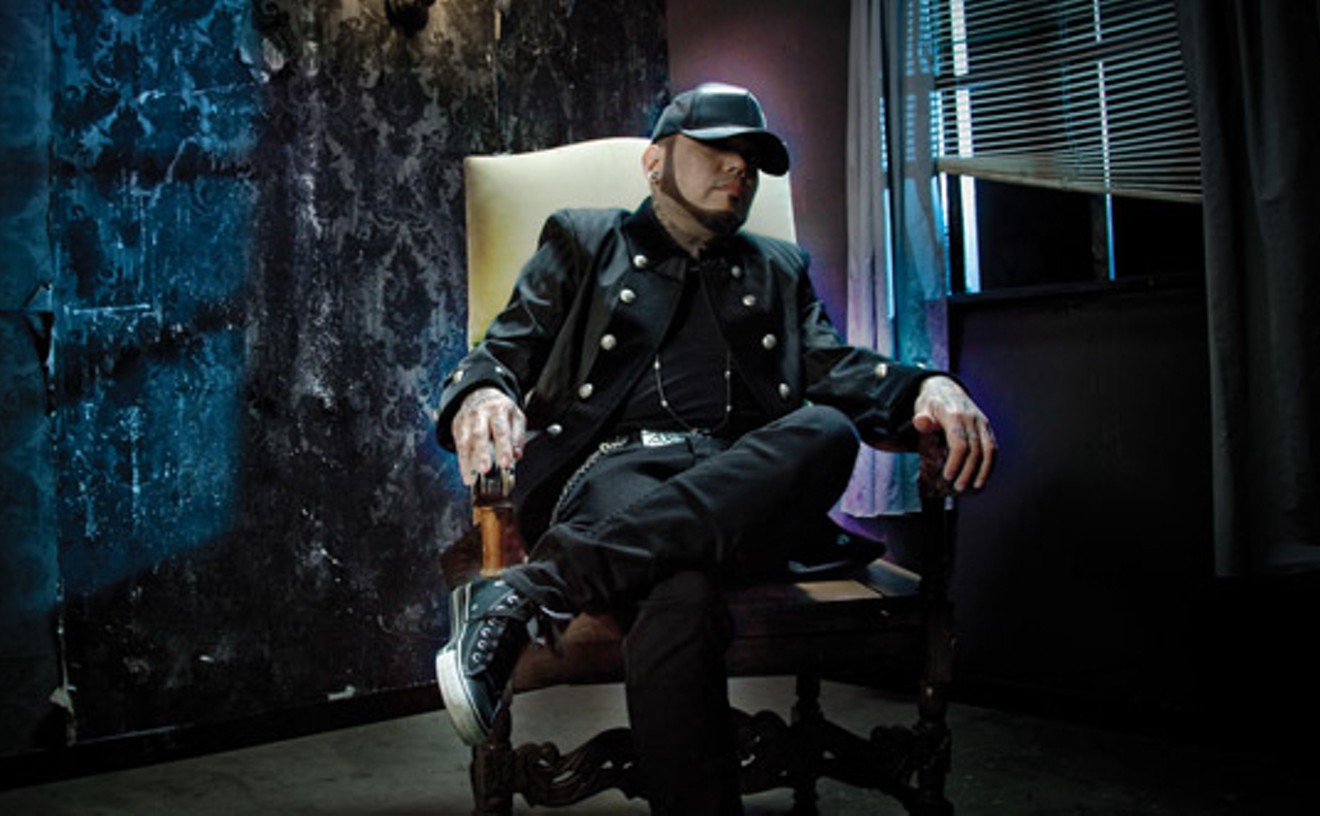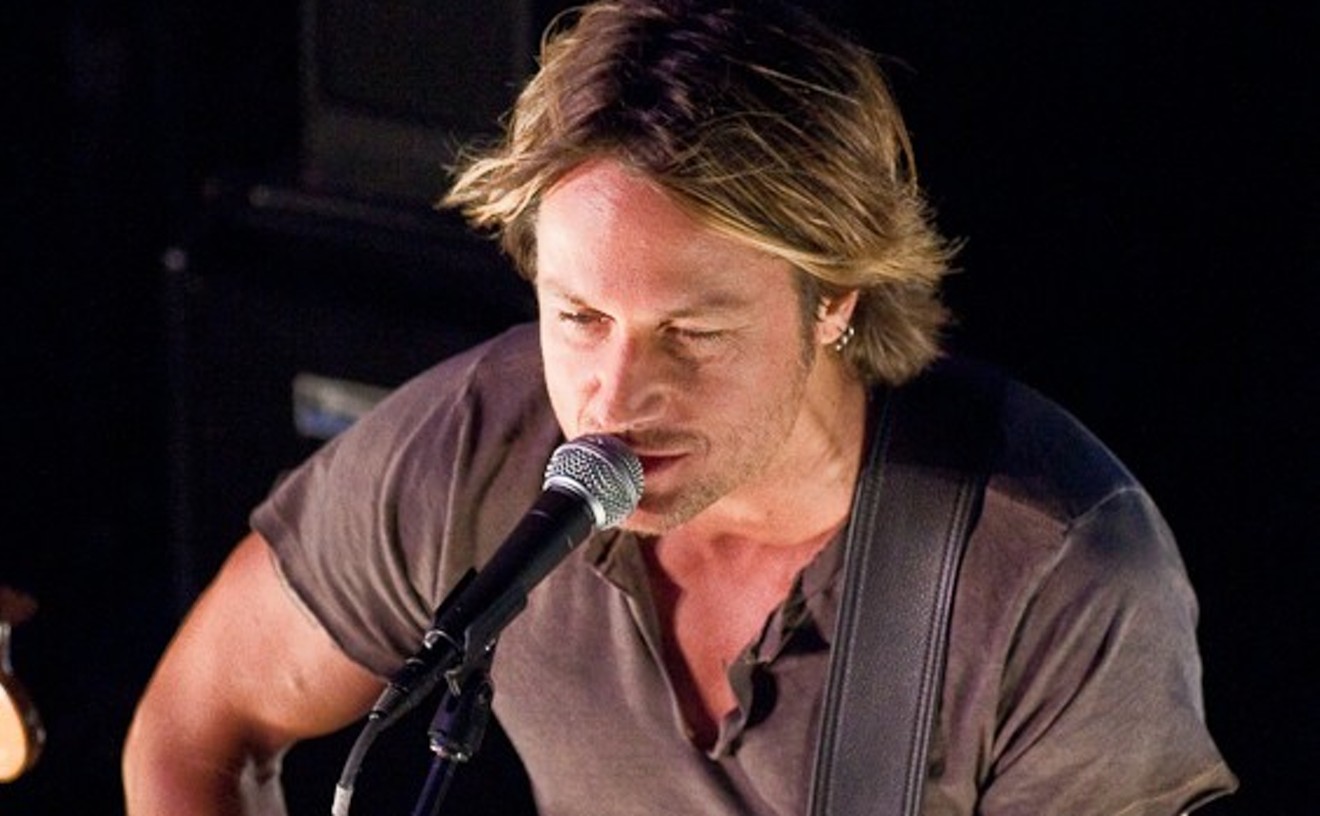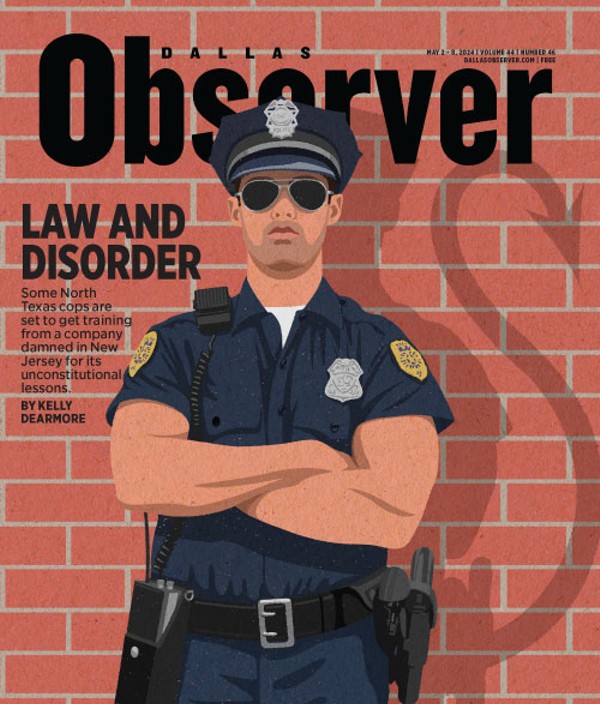By the late summer of 1959, my record "Action Packed" b/w "I Make the Love" had been out for a little while. KBEC-AM in Waxahachie was playing it, as was the top black radio station in the Dallas-Fort Worth area, KNOK-AM. KNOK was playing it several times a day, and it was a thrill to hear it on the radio. My management told me it was getting airplay in several cities in the East: Philadelphia, New York City, Detroit, Chicago, and Washington, D.C., were supposedly spinning the record. I had never had such excitement as this. I mean, it's habit-forming, man! There was even talk that I would be doing an Eastern promotional tour to meet disc jockeys and perform at various record hops and TV shows in each area.
American Bandstand had spawned a lot of dance shows that used the Bandstand format with kids dancing live every day on local TV. It was great exposure for record companies and artists. But I had traveled very little in my life, mostly with the Light Crust Doughboys, and that was mainly in Texas. I had never been close to an airplane, much less flown on one. These were exciting times for Ronnie Dee.
The Eastern tour was confirmed, and I was scheduled to leave Dallas by plane during the first week of December 1959. As the departing date grew closer, things got exciting. There was a write-up in the hometown paper, the Waxahachie Daily Light News, and friends were wishing me well. Mom and Dad took me to town and bought me two new suits, a couple of ties, and two white dress shirts. Actually, it was just one suit with two pair of pants and a groovy gray-and-black-striped sport coat--well, as groovy as you could get in Waxahachie. I'm wearing the suit, and the black tie with gold sparkles in it, in several old publicity photos.
Man, I was set: Show me the people! I loaded two suitcases and a Fender Strat into "Doodle" Boyd's 1955 Chevy, and at 5 a.m. I got ready to depart for the first city on the trip--Detroit, Michigan. Are you kidding me? It was cold in Waxahachie, so you knew it was gonna be cold in Detroit! Doodle had volunteered to drive me to Love Field Airport for a 7 a.m. flight. I don't know what I would have done without the help of so many wonderful friends. It was still dark outside when we arrived at Love Field in Big D. Well, I'd never been to an airport of any kind, and Doodle and I didn't know where to go. We ended up driving to a hangar, because we saw airplanes sitting out there, but we thought it was strange they were all dark. A security guard showed up and told us we had taken a wrong turn at the front gate. Hell, we didn't know.
I finally got on the plane and, a couple of hours later, when we were landing in Chicago--where I had a layover before heading to Detroit--the pilot came over the speaker and said it was 3 degrees outside. I knew I didn't bring nearly enough warm clothes. When we finally got to Detroit, it was just as cold, and there was snow on the ground. I got off the plane, and there was a representative from my record distributor waiting for me. It wasn't hard for him to pick me out of the crowd: I was the bumpkin with the blond flattop and no coat. And I looked like I was about 14 years old.
He took me to my hotel, and I was all eyes: Man, this is Detroit! Home of the Ford. My label--Back Beat, owned by legendary record man Don Robey out of Houston--had scheduled me on a local dance show right away, so I went directly from the airport to the TV station, lip-synched "Action Packed" in front of the kids and cameras, and signed a few autographs. I hated lip-synching. You could barely hear your vocal track on the record, because for some reason, smaller TV stations just couldn't play the record very loud. But record distributors know how to work you: They will volunteer you for anything and everything--for free! They were all very nice to me, but it was all business.
From the TV station in downtown Detroit, we headed to the motel, where I had 30 minutes to freshen up a bit. I found out we were doing five record hops that night, so we would only have time for a quick meal before heading to Royal Oak, a suburb of Detroit, for the first one. Record hops were great promotional gigs that took place in school gymnasiums and auditoriums and, on occasion, youth centers. Local DJs became heroes at these gigs. They made stars of guys like Alan Freed, Dick Clark, and, later, "Wolfman" Jack. These local DJs would promote the gigs on their radio shows, and artists such as myself--and those much bigger than I was--would perform for nothing, all in the name of promotion. Years later, there would be much written about the payola scandals of the late 1950s and early '60s--they would eventually be the undoing of Alan Freed--but it all appeared so innocent at first. Soon enough, it became sinister: It turned out labels were paying DJs to play their records. But it was all happening so fast for me that I didn't have time to think about that, much less question it.
All I knew was somebody was paying for it, because I didn't have any money at all. The record company bought my airline tickets, and my management paid any extra--which wasn't much. But this was a hell of a schedule for my first day--flying all day, playing all night. I didn't even have time to get homesick. It didn't stop: I was bused back to the motel at about 3 a.m., and it was hard to believe I'd been in Waxahachie not even 24 hours earlier. There were messages waiting for me to be ready to go at 8 a.m.--in five hours! Shit, man, this is work! But these record company guys were serious. They picked me up promptly at 8 a.m., and we proceeded to kiss DJs' asses all day long. These guys didn't know or care who I was at all, so I had to make myself unforgettable in order to get them to play my record. It was OK at first, but it got depressing after a while.
I was learning a lot, maybe too fast, but I had no choice. I had to learn to deal with it, because you didn't get any do-overs. The Detroit kids seemed to like me, and I would have loved to have had a band and played live for them--I mean, isn't that what we were after? Lip-synching to a record at a "live" record hop was so frustrating. You'd just stand there with no microphone and a guitar that wasn't even plugged into anything. I thought to myself, "This isn't the way music is meant to be heard." I didn't know what I had gotten myself into--I went in blindly, with all the excitement of a little kid away from home for the first time--but I had to make the best of it.
Some of the kids seemed to know "Action Packed" when I performed it. I got to meet some of them, and that made it worthwhile. I was talking to people my age who were from a completely different part of America, and they asked me about Texas and whether it was really like the set of a Western movie, with people riding horses everywhere. I said yes, of course, telling them there were even tumbleweeds blowing through the streets of Big D. Talking about these things with people who talked funny to me was a lot of fun, and I was an amusing foreigner to them as well. They laughed at my Texas twang and asked me to repeat certain words. Every time I did, they would look at each other and giggle some more.
The next morning had come around just as quickly as the one before; the days were already bleeding into each other. I had been scheduled to go to Pittsburgh, but weather had closed the airport there, so I ended up going to Washington, D.C. When I found out, I was giddy: Wow, are you kidding me? I had never thought I would see the nation's capital, which seemed on the other end of the earth to a kid from Waxahachie. But I had little time for sightseeing: The record company had managed to get me on another local TV dance program, The Milt Grant Show, and there were a lot of DJs in Washington allegedly playing my record.
But I couldn't have cared less at that point. I was, quite simply, freezing. Three days into this tour filled with below-freezing weather, and all I had to keep me warm was my blue-jean jacket. When I got to Washington, I called Ed Watt at my management agency in Dallas and told him I had to buy a heavier coat. He told me to go ahead, but all I had on me was 75 bucks, and a decent coat was going to cost me at least $50. Somehow, Ed would have to send me more money, but he was a hard man to get money out of. He would always do what I asked, but it was never easy.
I had another TV dance show scheduled in D.C., and then it was off to visit some DJs again--my least favorite thing to do. But in Washington, there were some black disc jockeys playing "Action Packed," and these guys were different from any others I had met on the trip so far, because they had been playing the record before I got there and genuinely seemed to like it, which made me feel terrific. One guy even played it four or five times while I was there, and he kept hollering, "I like that record! I like that record!" Man, I needed this. I had been kind of scared until that moment, but now the trip suddenly felt worthwhile. The TV show also went well, and some kids at the studio told me they had heard the record and liked it. It might have been cold outside, but the reception in Washington, D.C., couldn't have been any warmer. Especially since I had my new coat.
The next stop was Philadelphia, and it was strange going there without doing American Bandstand, the show that spawned all the imitators I'd been visiting along the way. My management said Bandstand didn't have an open slot until January and that I would have to fly back up and do the show then. Philly was a lot like D.C., and I met a lot of black DJs who liked "Action Packed." But maybe I shouldn't have been so surprised. After all, my label was owned by Houston businessman Don Robey, who had owned clubs in Los Angeles and Houston before becoming a talent manager in 1947 (his first client was Clarence "Gatemouth" Brown) and forming Peacock Records in 1949. By the late 1950s and early '60s, Robey owned Duke/Peacock, Back Beat, and other small subsidiaries, and he handled such artists as Johnny Ace, Junior Parker, and Bobby "Blue" Bland. He was beloved in the black community, and I was fortunate to be connected to Robey. There were many times on that tour that I was the only white (and I do mean white) person in a crowd of 300 or 400 black kids, and I felt right at home.
I was overjoyed that black people even listened to my record, much less bought it. A lot of folks even brought the record to the hops and asked me to sign it, which blew me away! I was in another world, and people were digging my record. This was starting to be fun. If I could have just done American Bandstand, it would have been perfect, but it was not to be. Not yet. I got lucky, though. I did the next best thing. I got on Alan Freed's TV show.
Freed had started in Cleveland, home to the Rock and Roll Hall of Fame decades later. In fact, Freed was among the first group ever inducted into the Hall; the man was, once upon a time, rock and roll. He was a jock in Cleveland, playing rock-and-roll records before anyone knew what rock and roll was. Freed called himself "Moondog," and he hosted concerts in Cleveland that became the stuff of legends--rock and riots. By 1954, he was so big-time he got an offer to work at a New York City station, and two years later, he was under contract to Paramount to make formula rock movies for kids, starring people like Bill Haley and The Comets, Little Richard, Chuck Berry, even Connie Francis. The movies had names like Rock Around the Clock, Don't Knock the Rock, and, of course, Mr. Rock and Roll, and Freed always appeared as himself.
But when I showed up at his doorstep at the end of 1959, Freed's reign was coming to an end. A month earlier, he had been subpoenaed to testify in front of the New York district attorney about his involvement with the payola scandals. He was about to be fired. Soon enough, he would have trouble finding work. In 1962, he was indicted for his involvement in the payola scandal, and by 1965, he would be dead. He was only 43.
I knew little about Freed when I got to New York City, and I soon discovered that his show was bigger than I had originally thought. At 6 p.m. every weekday in the New York-New Jersey area, his show followed the national broadcast of Bandstand; in the winter of 1959, Freed was still the main man. Still, despite his fame and the pressure of the payola investigation, Freed came across as a very sincere guy--real warm and genuine. I relaxed right away, which hadn't been so easy.
The national promotion man from my record company--Dave Clark, who looked like he was about 65 years old--drove me from Philadelphia to New York City. Dave, like Alan Freed, would become a major player in the payola investigation to come. We made an odd pair: He was a surly, middle-aged black man, and I was a kid from the country who looked like he was 14 and wasn't much older. He'd been around, maybe too long, and he kind of scared me at first. Dave wasn't a bad sort. He'd just been doing his job too long, fighting his way through New York City bullshit. Being a black executive in the music business couldn't have helped either. Sooner or later, all of it had to take its toll.
Then I found out everybody in New York City acted like Dave Clark. Everybody except Alan Freed.
When Dave took me to the TV studio, everybody seemed to know him, but he wasn't much nicer to them than he'd been to me. Dave introduced me to Roy Hamilton, a former Golden Gloves champ who had a Top Ten hit in the mid-1950s with "Unchained Melody" long before the Righteous Brothers ever recorded it. Roy was a guest on Freed's show, and Dave was really nice to him because Roy stood about 6-feet-6 and still looked very much like a fighter. Roy was as nice as Alan Freed was, and I'll always have fond memories of meeting him--especially since he would pass away from a stroke a decade later, when he was only 40 years old.
It was all so amazing to me. Five days into this tour, and I was being exposed to people and places I never dreamt I would ever see. And then I was on TV, talking to Mr. Rock and Roll. Freed made fun of my Texas accent during our on-camera interview, but he was just having a little fun. The kids on the show liked "Action Packed," and I signed quite a few autographs after the show. But I was so tired I was working in my sleep. I never wanted to close my eyes--there was so much to take in! I couldn't sleep. This was New York City.
My label put me up at the Forrest Hotel at 49th and Broadway, right across the street from the Brill Building, where most of the publishing companies and many record labels had their offices. It was the center of the music-biz universe, but I had no idea at the time. Some years later, I discovered that the Forrest was the home away from home for many traveling musicians, including the bands of Count Basie, Tommy Dorsey, and Harry James.
I was scheduled to catch a train out of Grand Central Station the morning after I appeared on Freed's show--man, no sleep again. By the time we got back to the hotel, it was already 2 a.m., and Dave said to meet him in the lobby three hours later. I knew this dude would be there, on the money, so I got my ass up at 4:30 a.m. and sleepwalked down to the lobby. Dave was already there. When we got to the train station, Dave let me out in front--out in the freezing cold, in the snow, in the middle of the strange nowhere.
"I'll see you in four days," he yelled out the car window.
"Dave, this is a big-ass place," I shouted back, carrying two suitcases and a Strat. "Where do I go?"
He pointed to the front of the building. "In there!" The cat was cold-blooded.
I somehow found my train to New Haven, Connecticut, where I got off for a few hours to do another TV show and visit four radio stations, before I had to get back on the train and head to Hartford, where I was scheduled to do yet another TV show. It was one I would never forget.
I walked into the artists' waiting room and saw standing before me Al Hibbler, who sang with the Duke Ellington Orchestra in the 1940s and had his own solo hits in the '50s and '60s. The Mississippi-born Hibbler, who was born blind, toured with Ellington until 1951--and, oddly enough, like Roy Hamilton, he too had a hit with "Unchained Melody." I loved Al. He was a real mellow cat, and he even asked me if I was playing anywhere in the East, like a club date. I told him I was just doing a promotional tour for my record, and he asked what it was called. I told him it was called "Action Packed," and he smiled.
"You've got to play somewhere so I can come and see you," he said, and I actually believed him. It made me feel good. I hope I can pass these wonderful things on to young musicians that I work with or meet along the way.
Also waiting to go on were Al Alberts of the Four Aces, who had a million-selling hit in 1951 with the song "(It's No) Sin," and Jerry Vale, whose first hit single, "You Can Never Give Me Back My Heart," was released in 1953. Vale was still a comer in 1959; his biggest hits would come in the 1960s. It was a thrill to be in the same room with these guys, all pop singers of the highest caliber.
But the funny thing was, these guys were all very nervous about going on a rock-and-roll dance party. Those kids could be brutal, and they knew it. It didn't matter that these three guys had been singing for years, that they had history and hits. It didn't matter, because by 1959, rock and roll had taken hold, and it had grabbed these guys by the throats. It brought a feeling of unity among us teenagers--it was our music, and we thought anyone that wasn't digging our music stood against us. We gobbled it up--the clothes, the cars, the records, all of it. Teens were buying 80 percent of all records sold, and we had power for a change. But our bark was bigger than our bite. We still didn't have a clue what the world was about.
After I performed that night, though, I knew where I stood with the kids. I got more attention than the other guys did, and it was kind of embarrassing in a way. I guess that's just the way it goes. Besides, I would be on the other end 40 years later.





